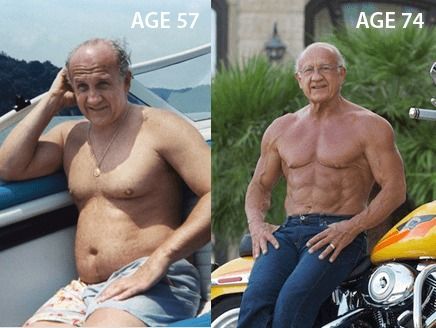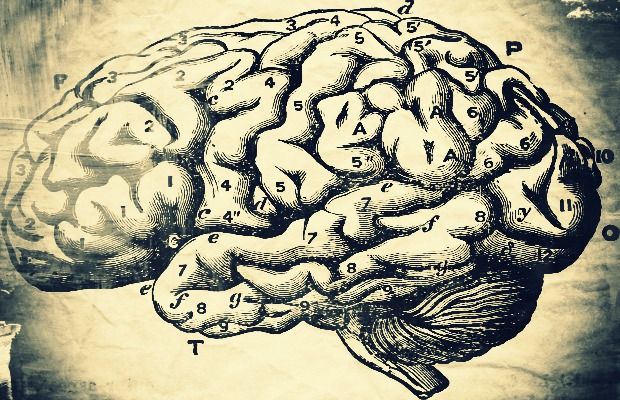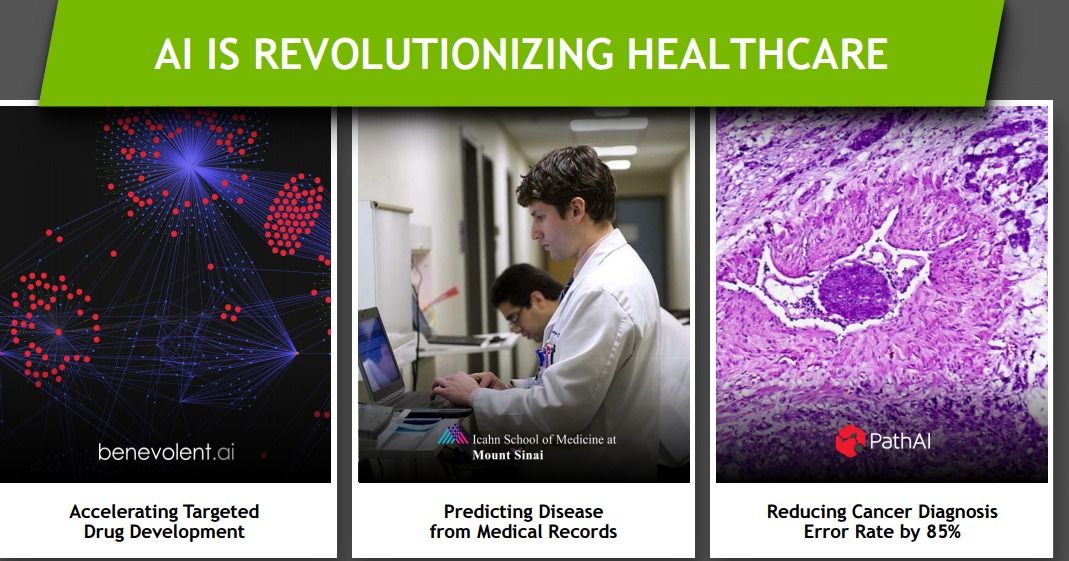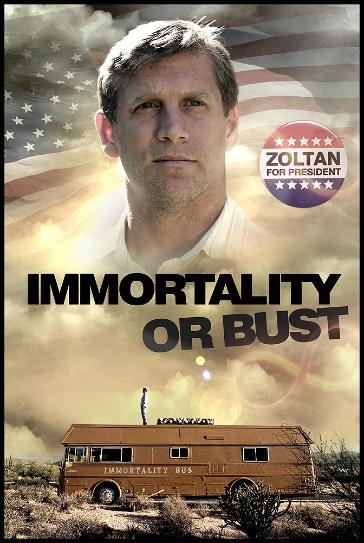Ray Kurzweil a futurist who works on Google’s machine learning project predicted that singularity would happen in the next twelve years at the SXSW conference in Austin, Texas.
Category: Ray Kurzweil – Page 24

Our Dystopian Future as Immortals
I thought this interesting enough to share:
Zoltan Istvan was my favorite presidential candidate in 2016. He toured the country in a bus modeled to look like a coffin, with the message that death is a curable disease.
And it’s not just people on the fringe who are involved in the anti-aging cause. There is a sister company of Google called Calico whose goal is “tackling aging.”
Ray Kurzweil, inventor, senior engineer at Google and holder of 21 honorary doctorates, has written a book called Fantastic Voyage: Live Long Enough to Live Forever. At age 69, he expects technology to improve enough in his lifetime that he will live forever. (In the meantime, he takes extremely good care of himself!)
But hold on a second. While we’re waiting for Istvan, Calico, and Kurzweil succeed, let’s take a moment to ponder the possible dystopian consequences.
The Six Epochs from The Singularity is Near
Join the discussion at TranshumanistForums.com!
All words are used with permission of Raymond Kurzweil and the Singularity is Near.
Please help spread the Singularity meme by buying his book!
Sample excerpts of The Singularity is Near is available at:
http://singularity.com/bookexcerpts.html
Company Claims Brain Transplants Could Bring Back the Dead by 2045
Not too shock by this given other transplant patient’s stories of memories, etc.

There are a lot of outrageous claims being made within the halls of neuroscience and artificial intelligence. Whether exaggerations, wishful thinking, the dreams of the egocentric and megalomaniacal to be immortal, or just drumming up funding for a never-ending round of “scientific investigation,” the year 2045 seems to always be cited as a target date.
Ray Kurzweil popularized the notion of The Singularity – the threshold when computing power would match or exceed the human brain and human biological systems – in his 2006 book The Singularity is Near: When Humans Transcend Biology. In that book, and subsequent articles, he theorized that 2045 would be the far end of when we could expect full integration of human and machine that would create immortality.
So far there have been indications that we are indeed proceeding in this direction. Beyond the gadgets we all use to augment our intelligence, each day seems to offer a new medical development that reads more like science fiction than reality. Just the other day there was an article in The Seattle Times that a new type of flexible brain implant could enable the paralyzed to walk again. We have robotic prostheses, humanoid robots, artificial human skin, and a range of nanotechnology applications used in medicine and the military that are quickly redefining life and nature itself. In fact, it’s been proclaimed by scientists that the era of cyborgs has begun.
Elon Musk’s Surprising Reason Why Everyone Will Be Equal in the Future
A recent conference on the future of artificial intelligence features visionary debate between Elon Musk, Ray Kurzweil, Sam Harris, Nick Bostrom, David Chalmers, Jaan Tallinn and others.

The Kurzweilian Singularity and Evolution of the Technigenome
Great read and highlights what I have been showing folks around the convergence that is occurring between technology and biology via Quantum. We’re achieving (in the Epoch chart on Singularity Evolution) Epoch 5 via Quantum Bio and our work we’re seeing from DARPA, Microsoft, Amazon, Google, and others. Synbio has to mimic the properties we see with Quantum Biology/ Biosystems. And, things like DARPA’s own RadioBio will enable and expose many things on multiple fronts in Biosensors (including security), IoT, healthcare/ medical prevention management and treatments, AI, etc.
Singularity – the state of being singular; Oneness.
The biological system is a natural form of technology. A simple examination of the nanobiology of the macromolecular system of any cell will attest to this – enzymes and structural proteins are veritable nanomachines, linked to the information processing network of DNA and plasma membranes. Far from being a primordial or rudimentary organic technology – we are discovering more and more the level of complexity and paragon technological sophistication of living systems, which as is being discovered, even includes non-trivial quantum mechanical phenomena once thought to only be possible in the highly specialized and controlled environment of the laboratory.
Reciprocally, soon our technologies will become living systems – particularly through nanotechnology (which is being accomplished through reverse engineering and hybridization with biomolecules, particularly DNA) and general artificial intelligence – machine sentience. Following this parallelization of biology with technology, we can examine how humanity as a technological supraorganism is undergoing a period of punctuated speciation – an evolutionary transformation of both our inner and outer world.

Stunning scientific breakthrough allows DNA “rebirth” of animals from long-dead, partially decomposed tissue samples
Bring to life those old biology and museum specimens back to life. Sort of.
Let’s see Ray Kurzweils prediction of bringing people back from the dead may not be that too far off with this recent discovery. BTW — he may be interested in this one.
(Natural News) Rare animals have been sitting in glass jars on museum shelves across the world for decades, but very little is often known about these specimens. And many people would say that is exactly where they belong: on a shelf, as an object of the past simply to be remembered and admired from afar.
However, a recent scientific breakthrough may be able to breathe new life into these long-extinct species. A new technique for extracting DNA has been developed, and it’s something researchers believe could be used to help bring these long-gone animals into the realm of genomic study. (RELATED: Follow more news about scientific breakthroughs at Scientific.news)
Rare animal specimens are kept in liquid-filled jars as a form of preservation. The liquid preservative, such as formalin, often come with consequences, however. As these creatures are left in the liquid, there is a large amount of DNA fragmenting going on — which makes them less than ideal subjects for DNA extraction.

What does being on track for the predicted Technological Singularity mean and are we on track?
Ray Kurzweil is famous for his vision and prediction of a Technological Singularity by 2049 Although whenever Ray predicts a date like 2049, based on Kurzweil’s own past reviews of his predictions, he gives his predictions ten years late or early to develop. So by Ray’s personal standard his prediction timing of being correct on the Technological Singularity would be if it happened in the 2041 to 2059 time window. Usually his predictions are based upon exponential developments and progress, so he rarely would make an error in predicting something happening too early.
The technological singularity is the hypothesis that the invention of artificial superintelligence will abruptly trigger runaway technological growth, resulting in unfathomable changes to human civilization.
Some use “the singularity” in a broader way to refer to any radical changes in our society brought about by new technologies such as molecular nanotechnology, although Vinge and other writers specifically state that without superintelligence, such changes would not qualify as a true singularity.
Aubrey de Grey: Indefinite Lifespans And Rationalizing Death
Aubrey and Kurzweil.
Don’t miss new Futurology videos! Subscribe by clicking here : https://goo.gl/wzFPRK
Enchance your focus and concentration like you never thought possible : http://bit.ly/2iPoRWl
Watch other videos :
This Is How Quantum Computing Will Change The World: https://youtu.be/0Hlssbyc49o

No Technology Thrives Alone: Progress Is All About Convergence
15 years ago, Ray Kurzweil published one of the most significant essays in the history of futurism: “The Law of Accelerating Returns.” This piece showcased the immense power of exponential technology versus linear technology and became a pivotal concept for anyone trying to anticipate what the future held.
The essay predicted advances in business and technology with eerie precision, including how exponential growth would ripple through any technology that became an information technology, such as computing, biotechnology, or energy.
